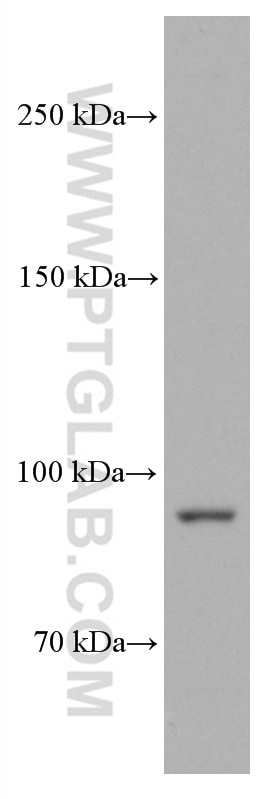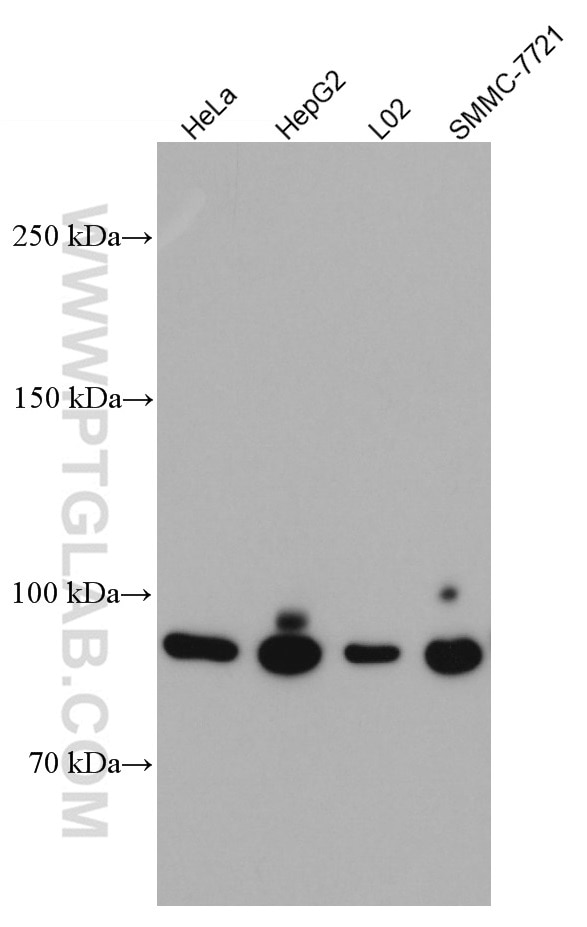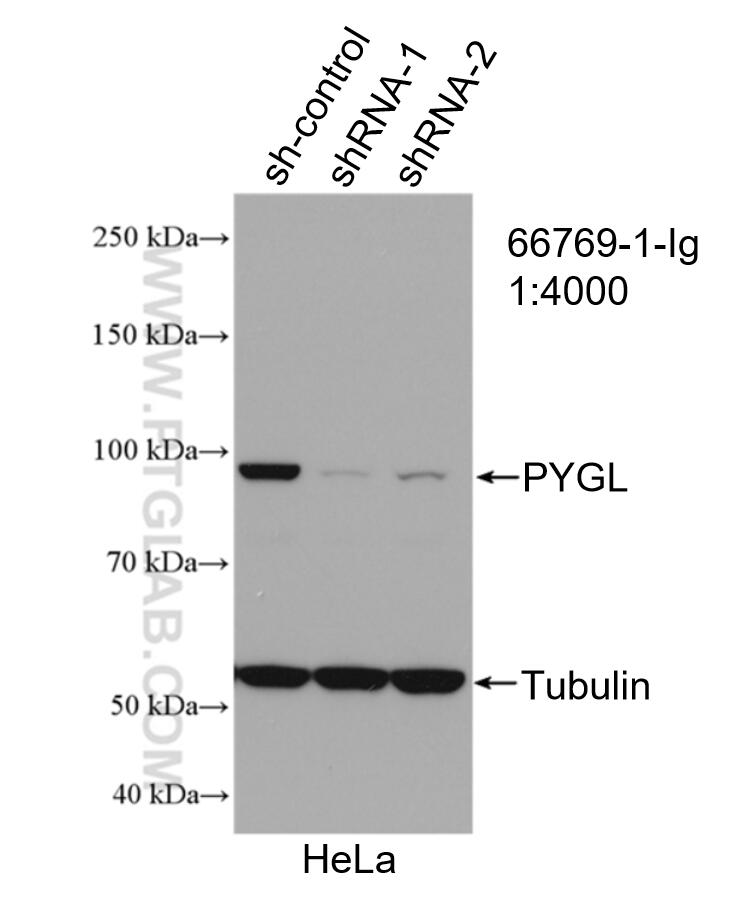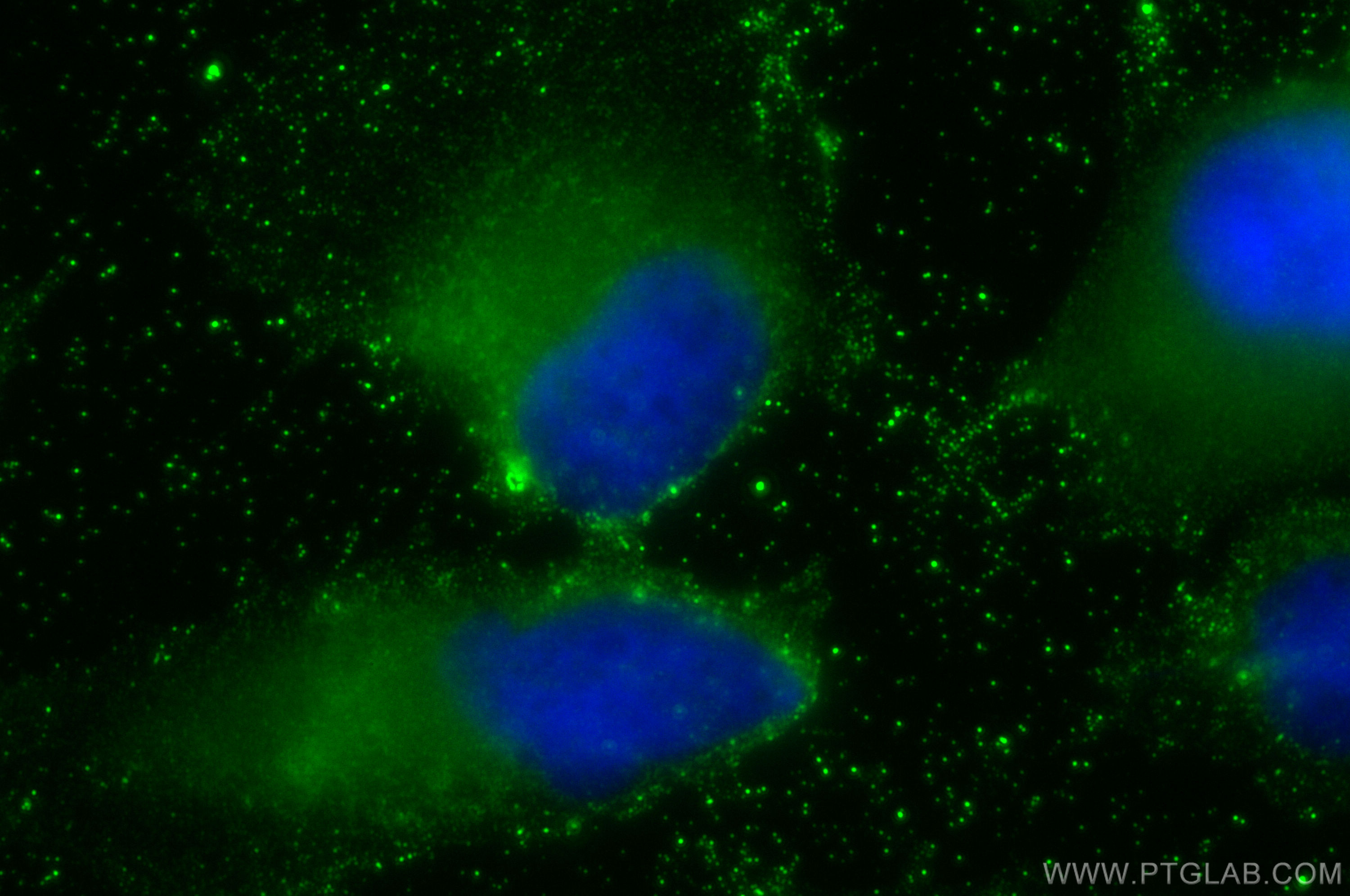Tested Applications
| Positive WB detected in | HSC-T6 cells, HeLa cells, HepG2 cells, L02 cells, SMMC-7721 cells |
| Positive IF/ICC detected in | U-251 cells |
Recommended dilution
| Application | Dilution |
|---|---|
| Western Blot (WB) | WB : 1:2000-1:10000 |
| Immunofluorescence (IF)/ICC | IF/ICC : 1:400-1:1600 |
| It is recommended that this reagent should be titrated in each testing system to obtain optimal results. | |
| Sample-dependent, Check data in validation data gallery. | |
Published Applications
| KD/KO | See 1 publications below |
| WB | See 1 publications below |
Product Information
66769-1-Ig targets PYGL in WB, IF/ICC, ELISA applications and shows reactivity with human, rat samples.
| Tested Reactivity | human, rat |
| Cited Reactivity | human |
| Host / Isotype | Mouse / IgG1 |
| Class | Monoclonal |
| Type | Antibody |
| Immunogen | PYGL fusion protein Ag8550 Predict reactive species |
| Full Name | phosphorylase, glycogen, liver |
| Calculated Molecular Weight | 846 aa, 97 kDa |
| Observed Molecular Weight | 97 kDa |
| GenBank Accession Number | BC009895 |
| Gene Symbol | PYGL |
| Gene ID (NCBI) | 5836 |
| RRID | AB_2882115 |
| Conjugate | Unconjugated |
| Form | Liquid |
| Purification Method | Protein G purification |
| UNIPROT ID | P06737 |
| Storage Buffer | PBS with 0.02% sodium azide and 50% glycerol, pH 7.3. |
| Storage Conditions | Store at -20°C. Stable for one year after shipment. Aliquoting is unnecessary for -20oC storage. 20ul sizes contain 0.1% BSA. |
Background Information
Glycogen phosphorylase L (PYGL) is one of the gene related to hypoxia metabolism and was found to be up-regulated in head and neck squamous cell carcinomas (HNSCCs) and breast cancers. Glycogen synthases (GSs) and glycogen phosphorylases (GPs) catalyze the key steps of glycogen synthesis and breakdown, while glycogen phosphorylase has three isoforms: PYGM (muscle), PYGL (liver), and PYGB (brain) (PMID: 37063425, 9529348). High PYGL expression plays an independent role in predicting the poor prognosis of glioma patients (PMID: 34177761).
Protocols
| Product Specific Protocols | |
|---|---|
| WB protocol for PYGL antibody 66769-1-Ig | Download protocol |
| IF protocol for PYGL antibody 66769-1-Ig | Download protocol |
| Standard Protocols | |
|---|---|
| Click here to view our Standard Protocols |









